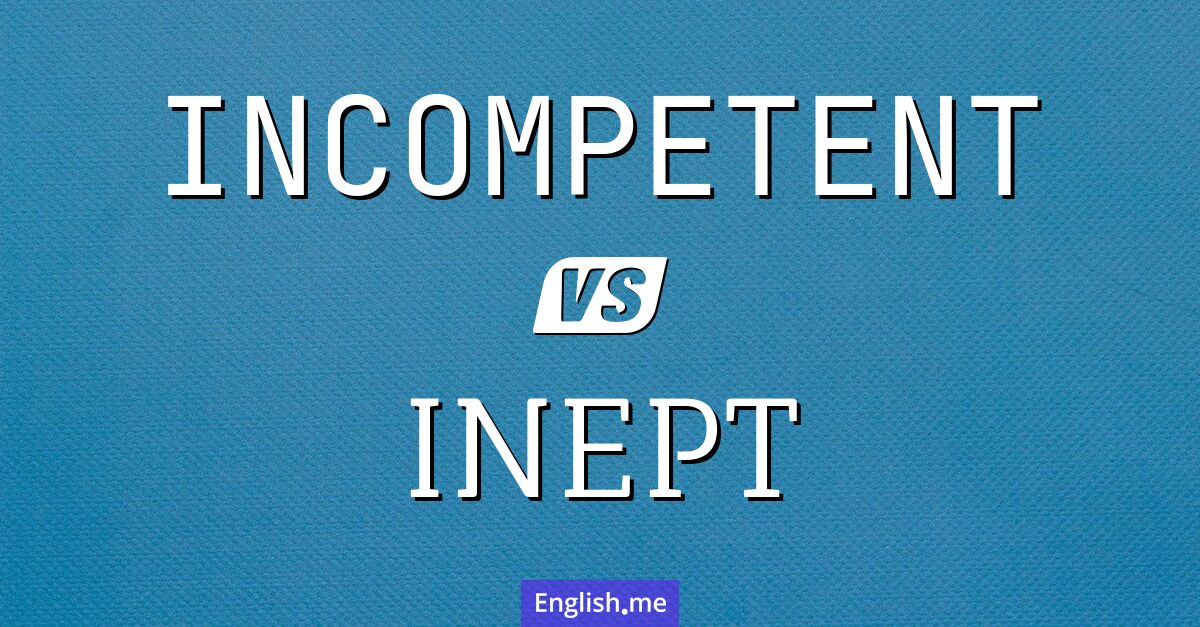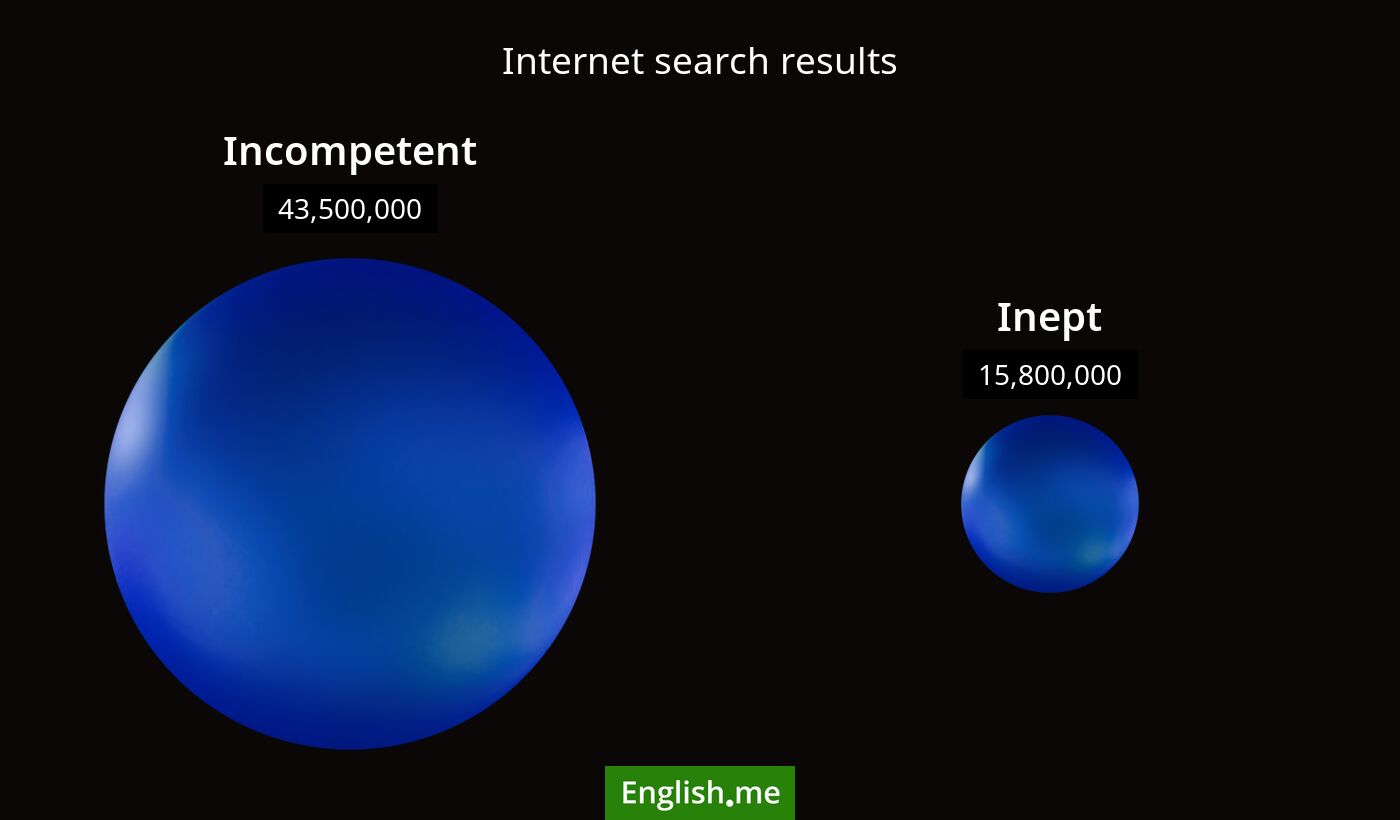When "incompetent" meets "inept": a dysfunctional duo
Reviewed and edited by  Lloyd Cooper 11/01/2025, 08:59
Lloyd Cooper 11/01/2025, 08:59
English.me team member

 What is similar?
What is similar?
Both "incompetent" and "inept" describe a lack of skill, ability, or proficiency in performing a task or function.
 What is different?
What is different?
While both words indicate a lack of skill, "incompetent" often refers to lacking the necessary qualifications or competence to perform a task successfully, especially in a professional or formal context. "Inept" often implies clumsiness or awkwardness and can suggest a lack of judgment or tact, especially in social situations.
 Which one is more common?
Which one is more common?

 Examples of usage
Examples of usage
Incompetent- The manager was fired because he was incompetent at running the department.
- Due to his incompetent handling of the project, the company lost a major client.
- She felt incompetent after failing the certification exam for the third time.
- His inept attempts at cooking always ended in disaster.
- The comedian's inept delivery of the joke left the audience confused.
- She was socially inept and struggled to make friends at the new school.

 English
English español
español française
française italiano
italiano deutsche
deutsche 日本語
日本語 polski
polski česky
česky svenska
svenska Türkçe
Türkçe Nederlands
Nederlands